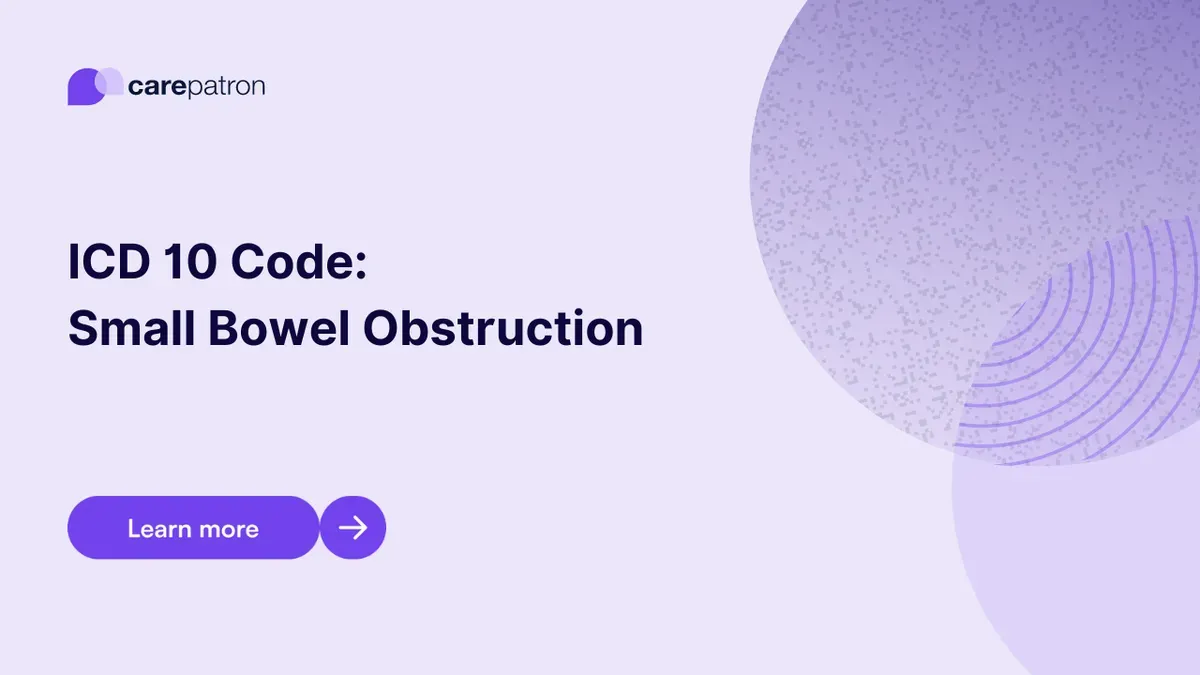
Small Bowel Obstruction ICD-10-CM Codes
Read this short guide and learn about small bowel obstruction ICD codes you can use.
Use Code
Commonly asked questions
No. Many ICD-10 codes don’t have the specific terms you might be looking for in their names and instead have different terms, this being one of them.
Some causes of small bowel obstructions are hernias, inflammations in the small intestine, and cancerous tumors.
Abdominal X-rays and CT scans can detect obstructions. Healthcare professionals will likely conduct blood tests and physical examinations first, though.
EHR and practice management software
Get started for free
*No credit card required
Free
$0/usd
Unlimited clients
Telehealth
1GB of storage
Client portal text
Automated billing and online payments
